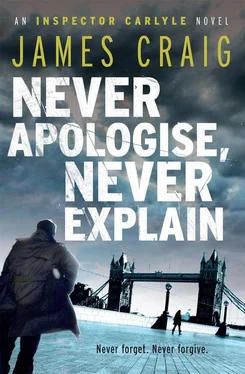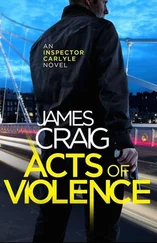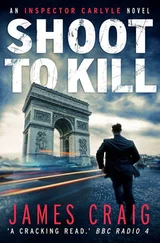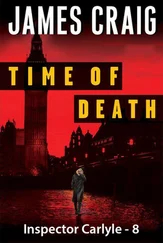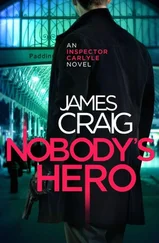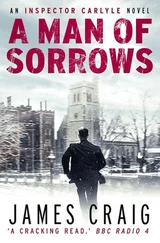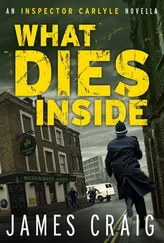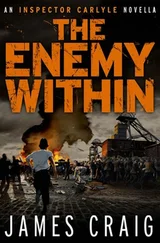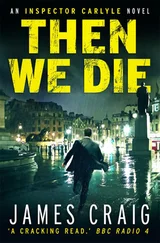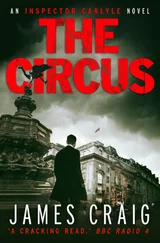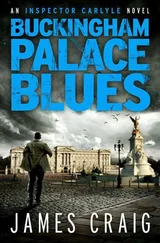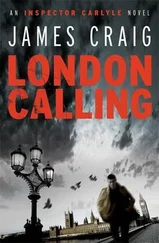James Craig - Never Apologise, Never Explain
Здесь есть возможность читать онлайн «James Craig - Never Apologise, Never Explain» весь текст электронной книги совершенно бесплатно (целиком полную версию без сокращений). В некоторых случаях можно слушать аудио, скачать через торрент в формате fb2 и присутствует краткое содержание. Жанр: Полицейский детектив, на английском языке. Описание произведения, (предисловие) а так же отзывы посетителей доступны на портале библиотеки ЛибКат.
- Название:Never Apologise, Never Explain
- Автор:
- Жанр:
- Год:неизвестен
- ISBN:нет данных
- Рейтинг книги:4 / 5. Голосов: 1
-
Избранное:Добавить в избранное
- Отзывы:
-
Ваша оценка:
- 80
- 1
- 2
- 3
- 4
- 5
Never Apologise, Never Explain: краткое содержание, описание и аннотация
Предлагаем к чтению аннотацию, описание, краткое содержание или предисловие (зависит от того, что написал сам автор книги «Never Apologise, Never Explain»). Если вы не нашли необходимую информацию о книге — напишите в комментариях, мы постараемся отыскать её.
Never Apologise, Never Explain — читать онлайн бесплатно полную книгу (весь текст) целиком
Ниже представлен текст книги, разбитый по страницам. Система сохранения места последней прочитанной страницы, позволяет с удобством читать онлайн бесплатно книгу «Never Apologise, Never Explain», без необходимости каждый раз заново искать на чём Вы остановились. Поставьте закладку, и сможете в любой момент перейти на страницу, на которой закончили чтение.
Интервал:
Закладка:
He turned back to the newspaper story. The dealers claimed to have been picking up leaflets that they had ordered from a printing business. According to this version of events, the leaflets were not ready for collection at the appointed hour. Meantime, the men were asked to deliver the holdalls instead in return for?250. The jury had taken less than fifteen minutes to find the cretins guilty. It was a surprise that its deliberations had taken that long. The police must have been pissing themselves.
‘Idiots!’ Silver studied the mugshots of the duo that accompanied the story and shook his head. He had mixed feelings about the police’s success in this case. The drugs had belonged to a rival dealer and someone else’s product being taken off the market was always good news. Without feeling too smug, Dominic felt that natural selection would always work to his advantage. At the same time, however, it showed that you could only push your luck so far. Disappointed customers would still want servicing and any gap in the market invited a free-for-all. There were plenty of people who would happily spill blood for the sake of market share. That was the capitalist way.
Dominic closed the paper and tossed it on the floor, thinking that it was getting ever closer to the time when he really should be calling it a day. He shut his eyes and tried to clear his mind of all its various distractions.
This, he knew, was a big test.
Could he live up to one of life’s basic rules?
Could he quit while he was ahead?
TEN
A shower and a fried-egg sandwich went a little way to easing the frustrations of the day. Alice had retired to her bedroom to do her homework, and seemed completely unfazed by recent events. Picking up the evening paper, Carlyle flopped on to the sofa beside his wife. ‘What a day!’
Helen finished sending a text message and dropped her phone on the coffee-table. ‘Well, at least there was no bomb. Apparently a couple of the older girls called it in.’
Carlyle gave her one of his many bemused looks. ‘Huh?’
‘They were due to have a test. They didn’t want to do the test, so
…’
‘So they said that there was a bomb in the bloody school?’ he spluttered.
‘Yes.’ Helen grinned.
He half-laughed. ‘Well, I suppose that’s using your initiative, kind of.’
‘But sadly for them,’ Helen continued, ‘one of the girls used her mobile to call it in. They are soooo busted.’
‘Jesus. How do you know all this so quickly?’
Helen tapped her nose with a finger. ‘The mothers’ network is always first with the news.’
‘Very impressive.’
‘There’s more.’
‘There is?’
‘Yes.’ Helen’s face darkened. ‘The sniffer dogs didn’t find any bombs, but they did come up with eight bags containing drugs.’
‘What kind of drugs?’ Carlyle asked.
‘I don’t know.’
‘Dope, presumably.’
‘What about that skunk stuff?’ Helen asked. ‘Isn’t that the new super-threat to the nation’s teens?’
‘Only if you’re a neurotic middle-class parent,’ Carlyle yawned, ‘happy to throw a bottle of Sauvignon Blanc down your throat every night while lecturing your kids about how they shouldn’t even look at a spliff.’
Helen regarded him thoughtfully. Normally she was the more liberal side of the relationship. When it came to drugs, however, her husband’s laissez-faire fatalism made her more than a little uncomfortable.
‘Basically,’ Carlyle continued, on a roll now, ‘it’s all the same stuff. You either use it or you abuse it. Some people can handle it; some people can’t. I’ll ask around in the morning, see what I can find out.’
‘Okay. That would be good. One of the bags belonged to a girl in Alice’s class.’
That stopped him in his tracks. ‘You’re kidding!’
His wife shot him a look that indicated that she most definitely wasn’t. ‘I don’t think she’s one of Alice’s friends but, still, we’ll have to keep a close eye on things.’
‘Yes,’ Carlyle agreed, moving swiftly from the realms of the theoretical to the pragmatic, ‘we will.’ He leaned across and pulled Helen towards him. For a while they just lay there, each of them thinking about their daughter and about the dangers ahead; each knowing also that there wasn’t really anything that they could do about it right now. You just had to wait and see how things turned out.
Finally Helen moved things on. ‘How was your day?’
‘Well…’ Carlyle sighed. He talked her through the story of Agatha and Henry Mills, or at least as much of it as he knew.
‘Will the case be closed tomorrow?’ she asked.
‘I hope so. We’ll see what Mr Mills has to say for himself in the morning.’ Henry Mills had been left to stew in the cells overnight. While Carlyle had been chasing around after his daughter, Joe had seen the man later that afternoon. Mills had stuck to his story that he had been fast asleep when someone had been practising their forehand smash with a frying pan on the back of his wife’s head. Exasperated, Carlyle had made it clear to the lawyer that they would charge him in the morning. Mills’s passivity was curious, but people reacted to stressful situations in different ways. Carlyle thought he might just be shutting down, trying to keep the outside world at bay. He decided to send in a psychologist to see what they made of the man. If nothing else, it would give a clear sign to Mills, and his lawyer, that they were curious about the state of his mental health. If the lawyer was sufficiently switched on, she would realise that the police weren’t buying her client’s story, but that they would probably be willing to do a deal on the grounds of diminished responsibility or something similar.
The inspector didn’t see the point of long sentences for domestic cases; it wasn’t as if the killers were a threat to the wider public, and it cost a fortune to keep them in jail. Far better that Mills’s lawyer got him to take a five-year deal, and the whole thing got wrapped up now. That way, he would probably be out in less than three. The alternative would be to go through the protracted, convoluted and hugely expensive legal process. If he did that, Mills would probably get eight to ten. There was a chance that he might get off on either a technicality or a jury’s sympathy vote but, if they were doing their job, the lawyer would tell him that it wasn’t worth the risk, or the hassle. Even if he won, he would still end up spending more than a year in custody, given the painfully slow speed at which the wheels of British justice manage to turn.
For Carlyle, the length of the sentence was an irrelevance. A win was a win. And a quick win was the best kind of all. Once guilt was confirmed, the case was closed. Nine times out of ten, he didn’t really care what happened beyond that.
Trying to forget about Henry Mills for a while, Carlyle returned to the evening paper. As usual, he read the sports pages first. Finding nothing of interest, he turned to the front. On page four his eye caught a story about an advert that the British Humanist Association had placed on the side of some of London’s red buses, proclaiming: There’s probably no God. Now stop worrying and enjoy your life. Carlyle, a devout atheist, immediately took offence at the word ‘probably’. ‘These bloody lentil-sucking, sandal-wearing, liberal do-gooders,’ he harrumphed to himself under his breath. ‘Why can’t they just tell it like it is? There is no bloody God. End of story. If people could just acknowledge that basic fact, everyone’s life would become a lot easier.’ Almost willing himself to get more annoyed, he read on: A spokesman said: ‘This campaign will make people think — and thinking is anathema to religion.’ Bollocks it will, thought Carlyle sourly. If you are stupid enough to believe in God, what good is a bloody slogan on the side of a sodding bus?
Читать дальшеИнтервал:
Закладка:
Похожие книги на «Never Apologise, Never Explain»
Представляем Вашему вниманию похожие книги на «Never Apologise, Never Explain» списком для выбора. Мы отобрали схожую по названию и смыслу литературу в надежде предоставить читателям больше вариантов отыскать новые, интересные, ещё непрочитанные произведения.
Обсуждение, отзывы о книге «Never Apologise, Never Explain» и просто собственные мнения читателей. Оставьте ваши комментарии, напишите, что Вы думаете о произведении, его смысле или главных героях. Укажите что конкретно понравилось, а что нет, и почему Вы так считаете.
